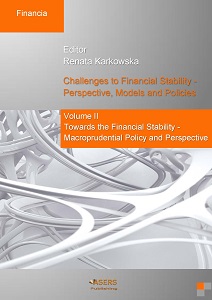THE INTENSITY OF REACTION TO THE FINANCIAL CRISIS OF 2008 IN THE EEA COUNTRIES AND SWITZERLAND. THE ROLE OF PUBLIC POLICY AND ECONOMIC FREEDOM AMONG THE OTHER DETERMINANTS
THE INTENSITY OF REACTION TO THE FINANCIAL CRISIS OF 2008 IN THE EEA COUNTRIES AND SWITZERLAND. THE ROLE OF PUBLIC POLICY AND ECONOMIC FREEDOM AMONG THE OTHER DETERMINANTS
Author(s): Małgorzata Zielenkiewicz
Subject(s): Economy, National Economy, Business Economy / Management
Published by: ASERS Publishing
Keywords: financial crisis; economic resistance; economic freedom; EEA
Summary/Abstract: In the scientific literature there are many publications focused on the causes of financial crisis of 2008. However, causes of the crisis are one issue, while the second one is the ability of the other countries to amortise the impact of the breakdown in the USA economy on their own economies. Evidences from European experiences show that even highly globalized economies tended to react to this phenomena with a different intensity. The chapter focuses on the factors responsible for the level of the resistance of developed and highly globalized economies to the crisis of 2008. The main aim of the research is to examine the role of the elements of public policy and economic freedom among the factors responsible for the resistance of the economies to the crisis on the basis of the EEA countries (without Lichtenstein because of the lack of data), and Switzerland. Following potential determinants were considered: branch structure of the economy, shares of the enterprises by size class, the level of market capitalization and dependency on banking, public debt, budget deficit, economic condition before the crisis, and Index of Economic Freedom. The analysis was conducted with usage of correlation coefficients and random-effect GLS regression models.
- Page Range: 58-81
- Page Count: 24
- Publication Year: 2014
- Language: English
- Content File-PDF

